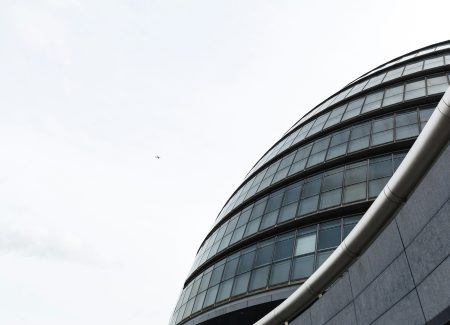Guide to digitize a hotel or tourist accommodation
1. Assesses needs and objectives
Before diving into digitization, it is essential to understand the specific needs and objectives of your company, as they are likely to be different from those of other companies in your industry. We have to analyze points such as:
- Starting point: What technologies have we implemented so far, what is our technological infrastructure, how satisfied are we with them.
- Current problems, challenges or improvements that could be solved with technology, especially those manual processes that can be automated.
- How to improve our customers’ experience, especially based on the feedback we get.
- Business objectives we have defined.
- Investment we plan to make in digitization, and in what timeframe.
This will help us to define a technology roadmap, where we can define our starting point – for example, whether we need to start by upgrading computers and connectivity, or whether we already have a certain degree of digitalization – and at what pace we can implement the different solutions according to our investment and amortization forecasts.
2. Implement a good hotel management system (PMS)
The PMS is the cornerstone in the digitization of a hotel or tourist accommodation, as it allows the hotel to manage reservations, billing… We must choose a PMS that adapts to our needs and above all that integrates with other digital tools that we may need, such as online check-in.
3. Improve your digital presence
A strong online presence is essential in the hospitality industry. This is the sector with the highest turnover in online channels in the first quarter of 2023 alone, well above agencies or physical branches. Direct bookings in hotels and accommodations rank third, behind only travel agencies and operators, air travel and apparel. There is no need for more arguments in favor of having a good digital presence!
This is the sector with the highest turnover in onlinechannels in the first quarter of 2023 alone, well above agencies or physical branches. Another point to value isthe optimization for mobile devices and the inclusion of an online booking engine to make it easier for guests to book rooms. From here, we can plan digital marketing actions to increase our bookings.
4. Automates the booking process
The booking process is a key point: If the process is not easy, generates distrust in the payment or in the security of the data, or gives some error, the user can choose to make the reservation on the website of another establishment that generates more confidence. Nobody wants to play with their vacation!
We need to have an online reservation system that allows guests to book rooms efficiently, with room selection options and integration of secure payment gateways.
5. Digitize the check-in process
Check-in is one of the most critical points in the customer experience. After an often long trip, they arrive tired at our reception and have to wait for the cumbersome check-in procedure, which is even more complicated if they are in a group or with other guests and have to wait in line.
Therefore, simplifying and automating the check-in process, by allowing guests to check in online or through a mobile app reduces waiting time and enhances their experience, while allowing the hotel to improve its operational efficiency.
6. Make data-driven decisions
Up to this point, we have assessed technologies that are essential for any tourist accommodation that wants to go digital. The next step is to collect and analyze the available data, for example, occupancy, guest preferences or performance of promotions we have done so far, to continue making informed decisions.
7. Implements digital security systems
Security is another essential point, both in the physical and digital world. In fact, the tourism sector is one of the industries most affected by cybercrime. Therefore, you need to ensure the security of your guests’ data and protect your operations in online channels.
8. Offers personalized services
Personalization is one of the keys to today’s tourism sector. Guests want their digital experience to be complete not only at the time of planning and booking their stay, but during their stay, with personalized communications and services, for example, with tips on local events, dining or transportation. However, we need to know the preferences of each client to be able to make this personalized communication, which will vary if they are families with children, couples, groups of friends, business travelers or even people who travel combining work and vacation. A Customer Relationship Management System (CRM) will allow us to collect and manage guest data to offer personalized services and targeted promotions.
9. Train the staff
Digitization also involves training our personnel to use the new technologies that we implement effectively. Make sure everyone understands how digital tools work and how they can benefit the business and guests.
10. Constantly evaluates, rectifies or optimizes
Digitization is a continuous process. Regularly evaluate the performance of your digital solutions and look for ways to improve and adapt to changing market needs and guest expectations.
Digitizing a hotel or tourist accommodation is a process that requires planning and effort, but the benefits in terms of operational efficiency and customer satisfaction are enormous.
Benefits of digitization in the hotel industry
- Task automation reduces administrative workload and improves booking accuracy, avoiding communication errors.
- Digital tools allow hotels to dynamically adjust rates based on demand and availability, maximizing revenue and room occupancy.
- We can improve the guest experience, increase loyalty and promote referrals, for example, by reducing waiting time at the front desk or offering personalized experiences.
- Digitization enables automation of repetitive tasks, such as invoicing and inventory tracking, which saves time and reduces human error.
- Digital tools facilitate communication and coordination between different hotel departments, leading to greater efficiency in operational management.
- Improved digital presence allows hotels to reach a wider audience and attract new customers.
In conclusion, investing in digitization not only leads to greater operational efficiency internally, but also creates a more attractive and satisfying environment for guests, who are increasingly digitized.










